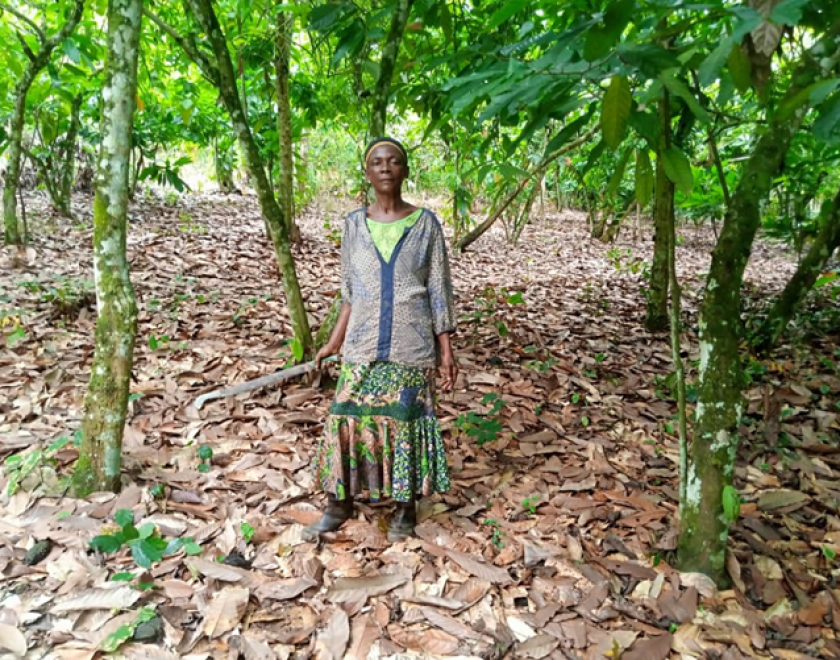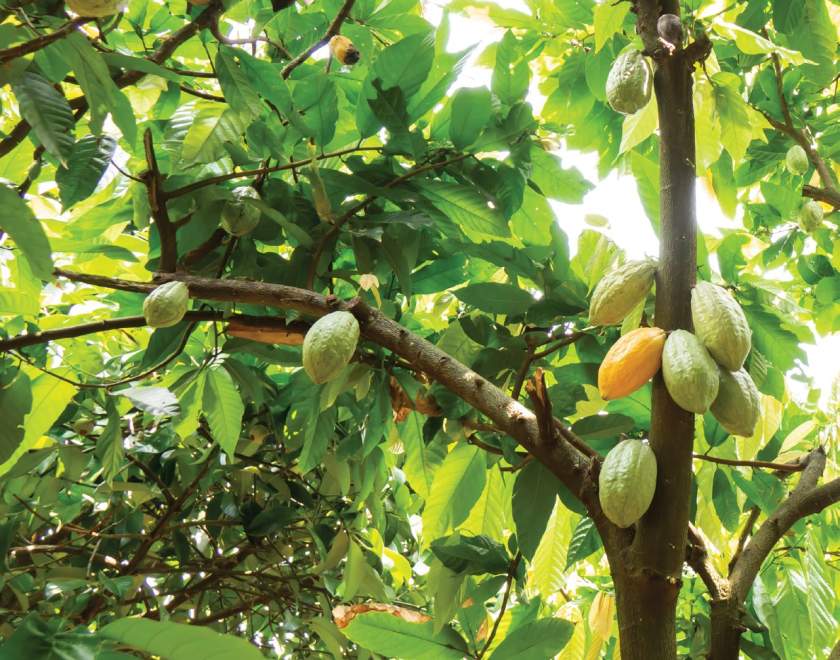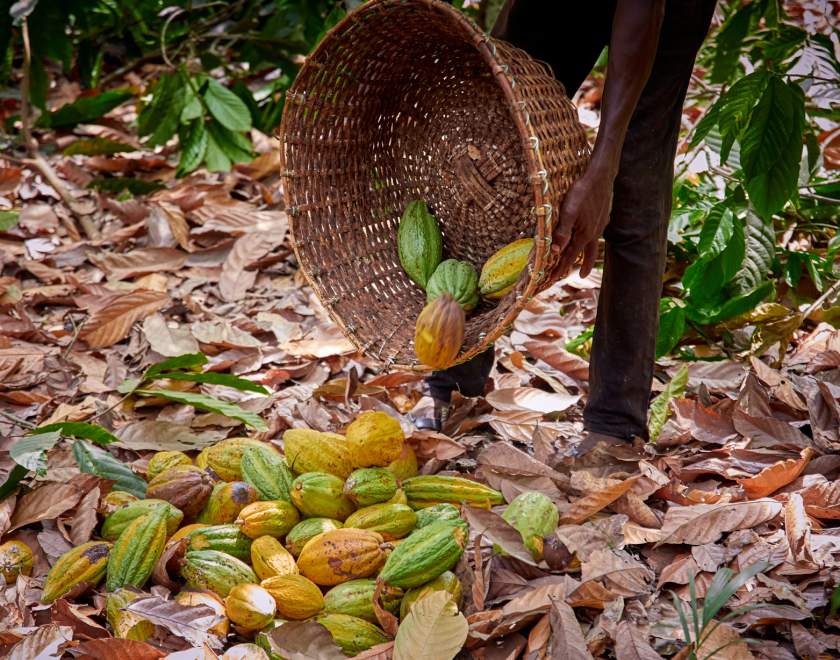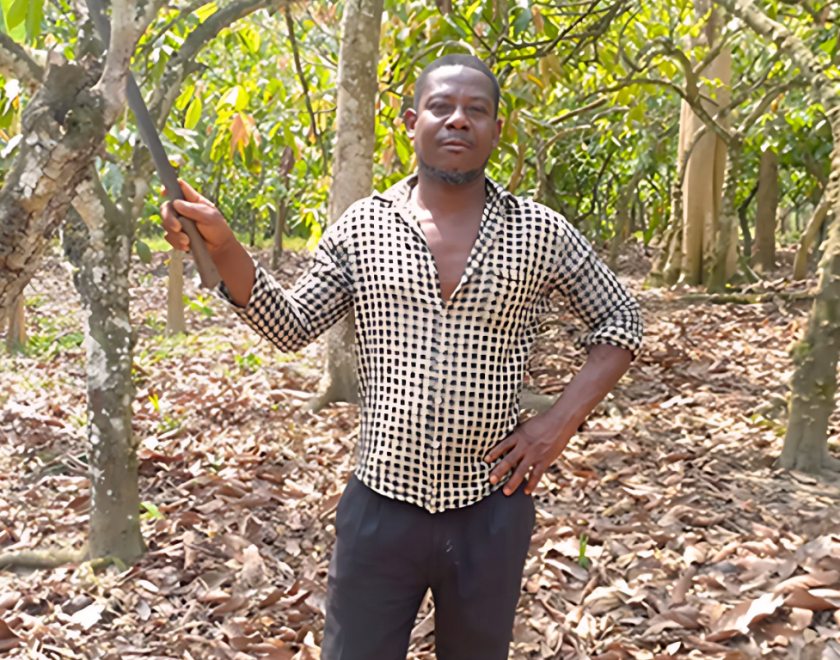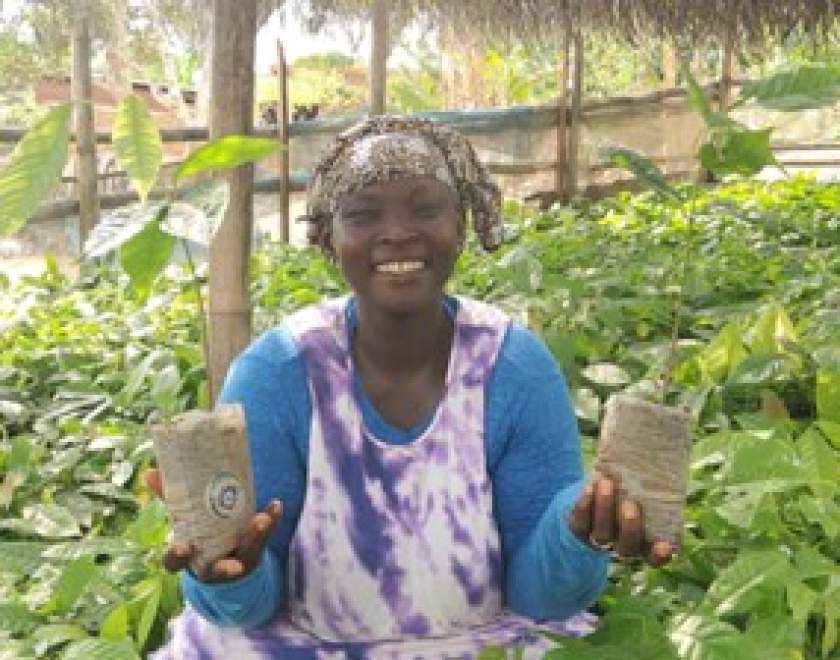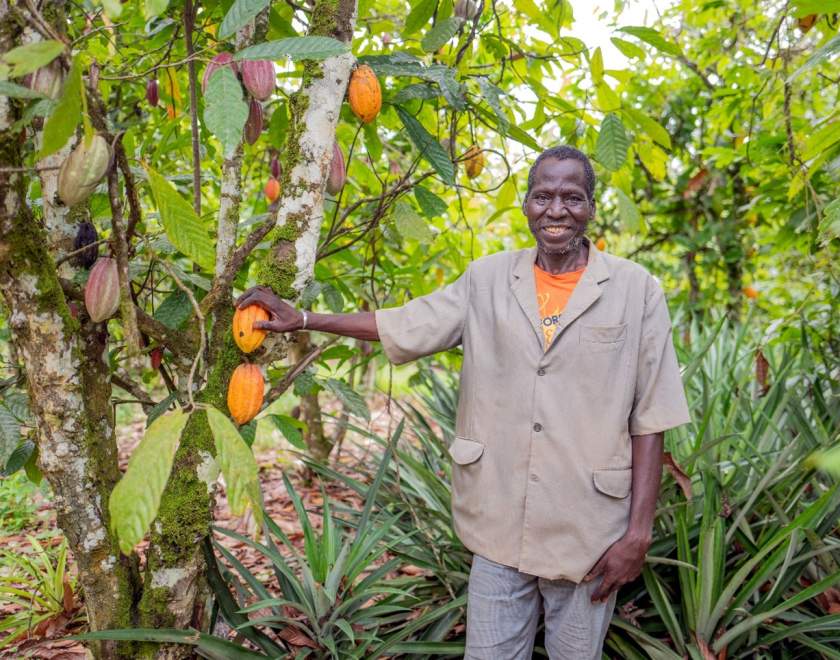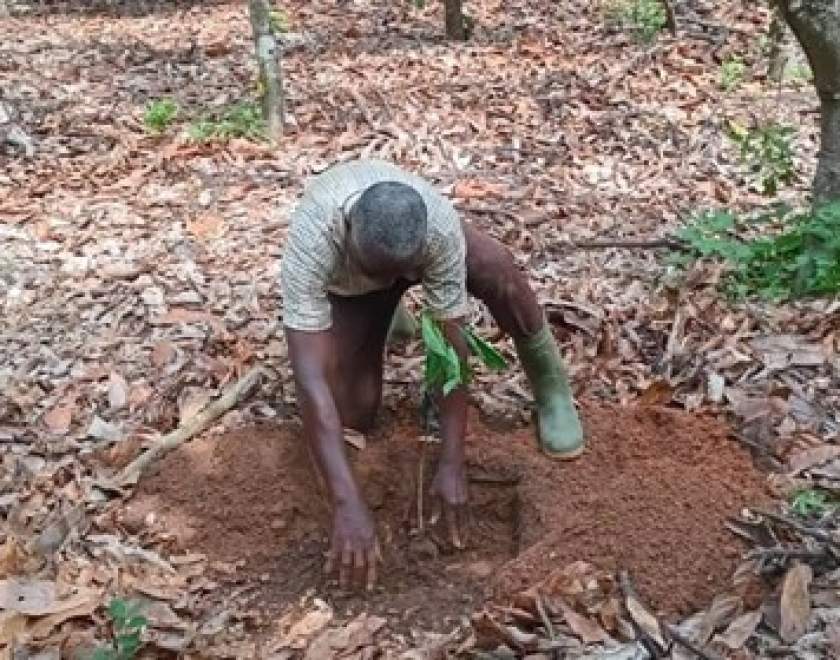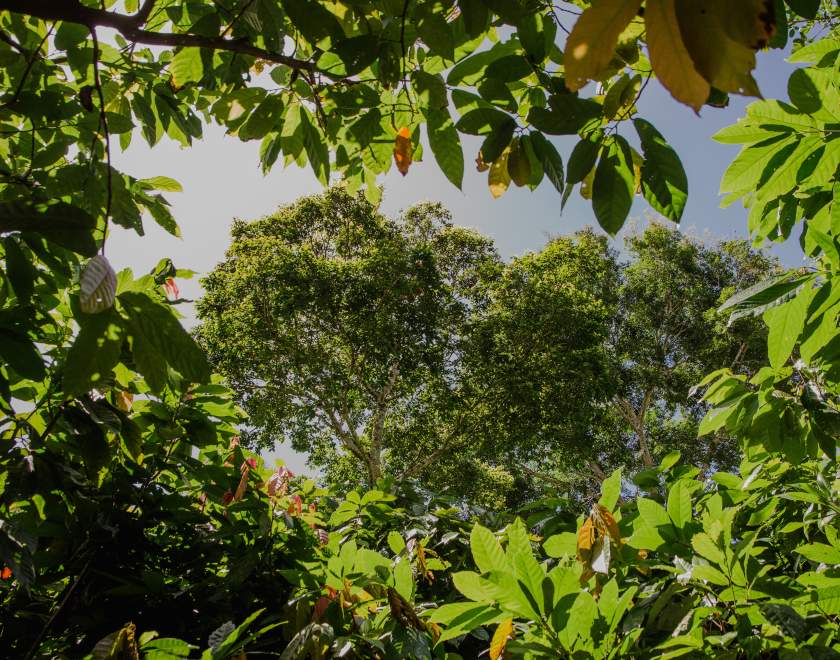
To drive systemic change in a complex environment, you can’t do it alone.
That’s been the overarching lesson of the Cocoa & Forests Initiative (CFI), the first and largest public-private partnership spanning the cocoa sector.
CFI has always taken an inclusive approach. It was formed at the 2017 UN Climate Change Conference (COP23) through coordination among company signatories, IDH, the Prince of Wales (now King Charles III), and the governments of Ghana and Côte d’Ivoire. Today, it includes 36 World Cocoa Foundation (WCF) member companies, which account for 85% of global cocoa use.
Yet it has never been clearer that more collaboration is needed to drive change. Over the coming weeks, companies will be reporting on progress made during the past year against their CFI targets and commitments, as well as telling stories about the successes achieved through broad collaboration in cocoa-growing communities and landscapes.
Surveying these updates, it is evident that progress is being driven by many hands making the work lighter for all. In total, CFI signatory companies have collectively invested $270 million for solutions in Ghana and Côte d’Ivoire over the past three years.
“CFI is a groundbreaking approach to solving one of the systemic challenges of the cocoa sector as we seek to collectively deliver a bright and sustainable future,” said Chris Vincent, WCF president. “At WCF, with our partners IDH, we’re proud to connect stakeholders across the cocoa sector to continue driving this unique public-private partnership.”
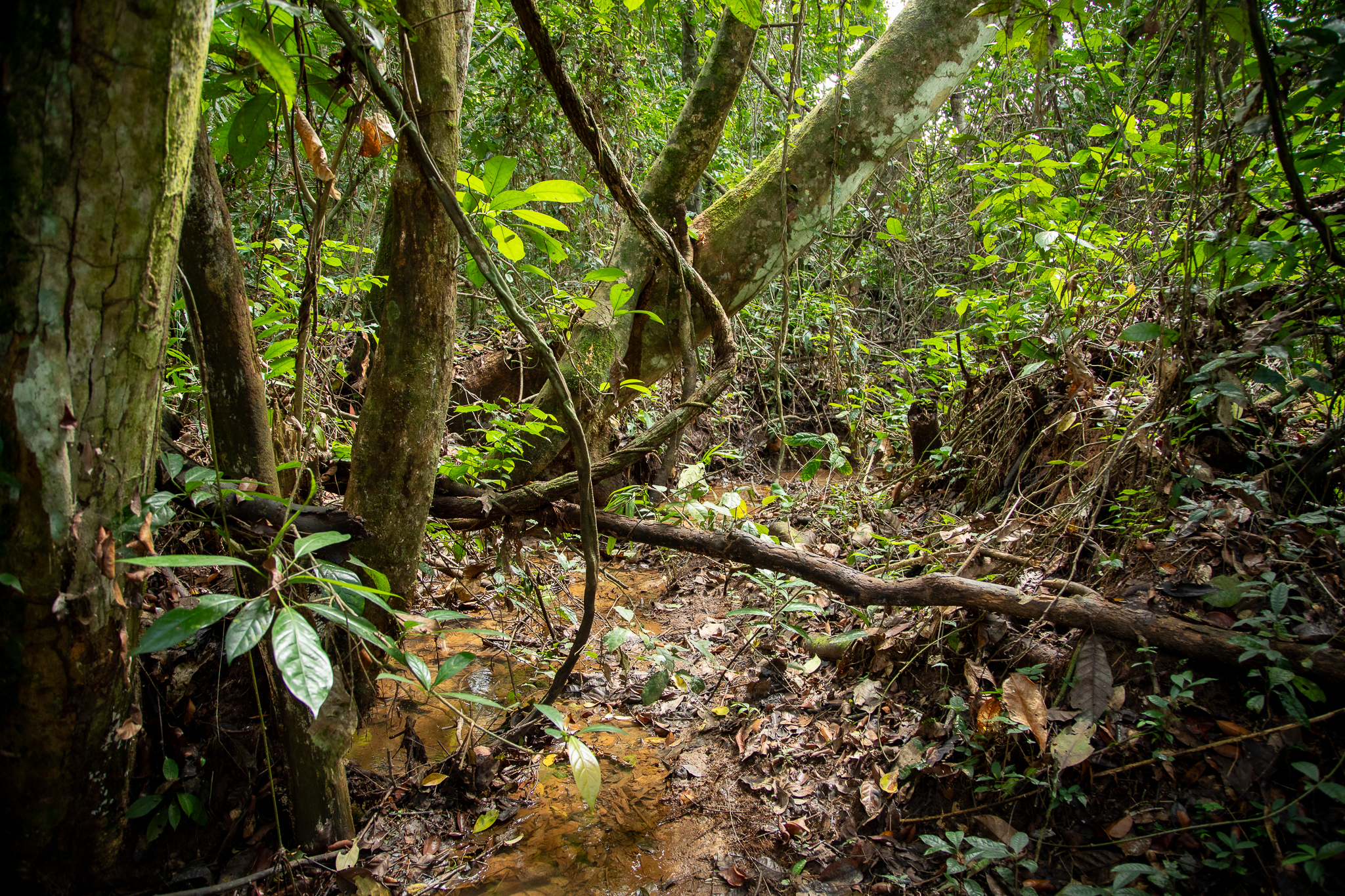
What was new in 2023
While a lot was learned in the first phase of CFI from 2018-2022, one lesson stuck out: Companies could not drive systemic change simply by taking action individually within their own supply chains. They must work together across the private sector, as well as collaborating much more closely with governments and community leaders, to make real headway.
And so, to build on the progress from the first five years of CFI, in 2023 WCF launched a second phase emphasizing collective action and co-investment in priority landscapes.
“This landscape approach will help CFI signatories address the urgent need to accelerate forest protection and restoration, while also addressing the drivers for deforestation in connection to cocoa, which are far bigger than any one company’s supply chain,” said Mawuli Coffie, WCF country director for the Ghana office.
In 2023, the WCF Board affirmed the Asunafo Asutifi landscape in Ghana and the Yapo-Abbé and Bossématié landscapes in Côte d’Ivoire as locations where we will focus our efforts to learn and drive impact. CFI partners collaboratively selected these landscapes as good test cases, and in Asunafo Asutifi, partners have already defined a land management plan and are working toward scaling up interventions.
This new focus on landscapes was announced at COP28, together with member companies and other stakeholders. The announcement included a $5 million commitment to work within Hotspot Intervention Areas (HIAs), using Asunafo-Asutifi as a test case. Fundraising activities for this landscape are currently underway.
In addition to creating this approach for collective action, individual signatory companies continued to make real progress during 2023 with emphasis on supply chain traceability, agroforestry adoption and social inclusion. Companies stepped up data collection and mapping efforts. And they strengthened the effectiveness of agroforestry solutions by working more closely to ensure those solutions truly meet the needs of farmers.
WCF played a key role in driving this progress for CFI by convening private sector signatories, appointing new leadership and working with partners to re-establish a strong governance foundation for the private-public partnership. We have also worked closely with companies and government partners to prepare for the European Union Deforestation Regulation (EUDR).
Looking ahead
Even with the progress to date, there is still a long journey ahead for the cocoa sector. On that journey, the unique strengths of CFI will continue to spur progress. That’s because it serves as a model for how diverse stakeholders can find common ground and work together.
As a first-of-its-kind public-private partnership, it gathers those stakeholders at the same table in search of solutions. In addition to finding ways to address deforestation, CFI also enables these partners to tackle a variety of interrelated topics and build programs and platforms for the future.
“This past year showed how we can start to move from aggregated action by individual partners to true collective action that will drive systemic change,” Chris Vincent said. “We are excited by the potential of CFI to unlock solutions for many of the challenges in cocoa that have previous eluded us and WCF looks forward to continuing to be in the center of those discussions.”
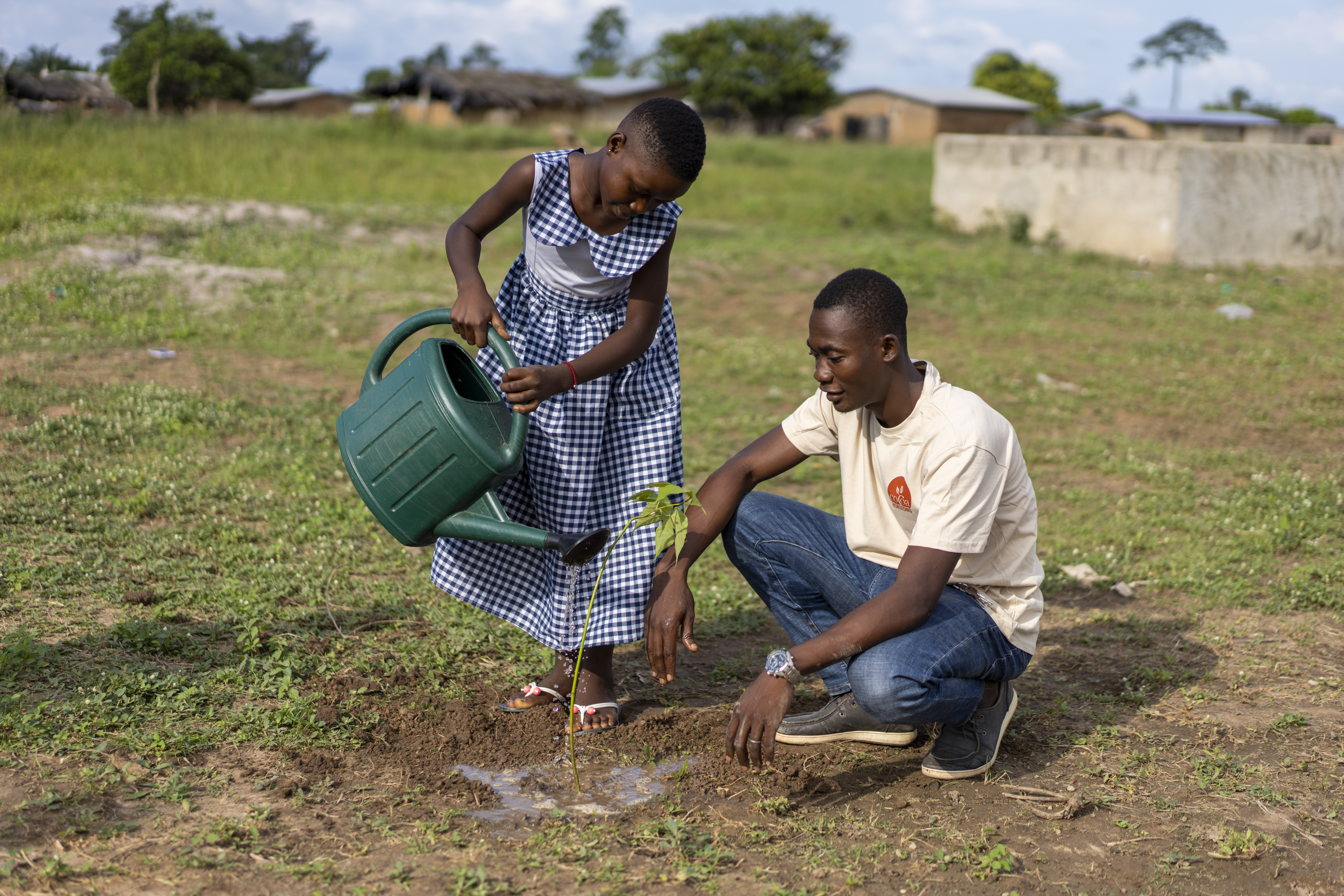
CFI by the numbers
$270 million invested by signatory companies over three years (2021-2023) in CFI-related pathways in Ghana and Côte d’Ivoire
83% of direct cocoa supply from signatory companies in Ghana and 82% in Côte d’Ivoire is now traceable to the plot level
43 million multipurpose tree seedlings for agroforestry distributed since 2018, with 130,000 hectares of cocoa agroforestry developed in 2023 alone
1.22 million trees were distributed for off-farm restoration efforts and 417,000 farmers were trained or informed of forest policy, protection and restoration in 2023
1.04 million farmers were provided with technical assistance to professionalize and optimize cocoa farming practices in 2023

